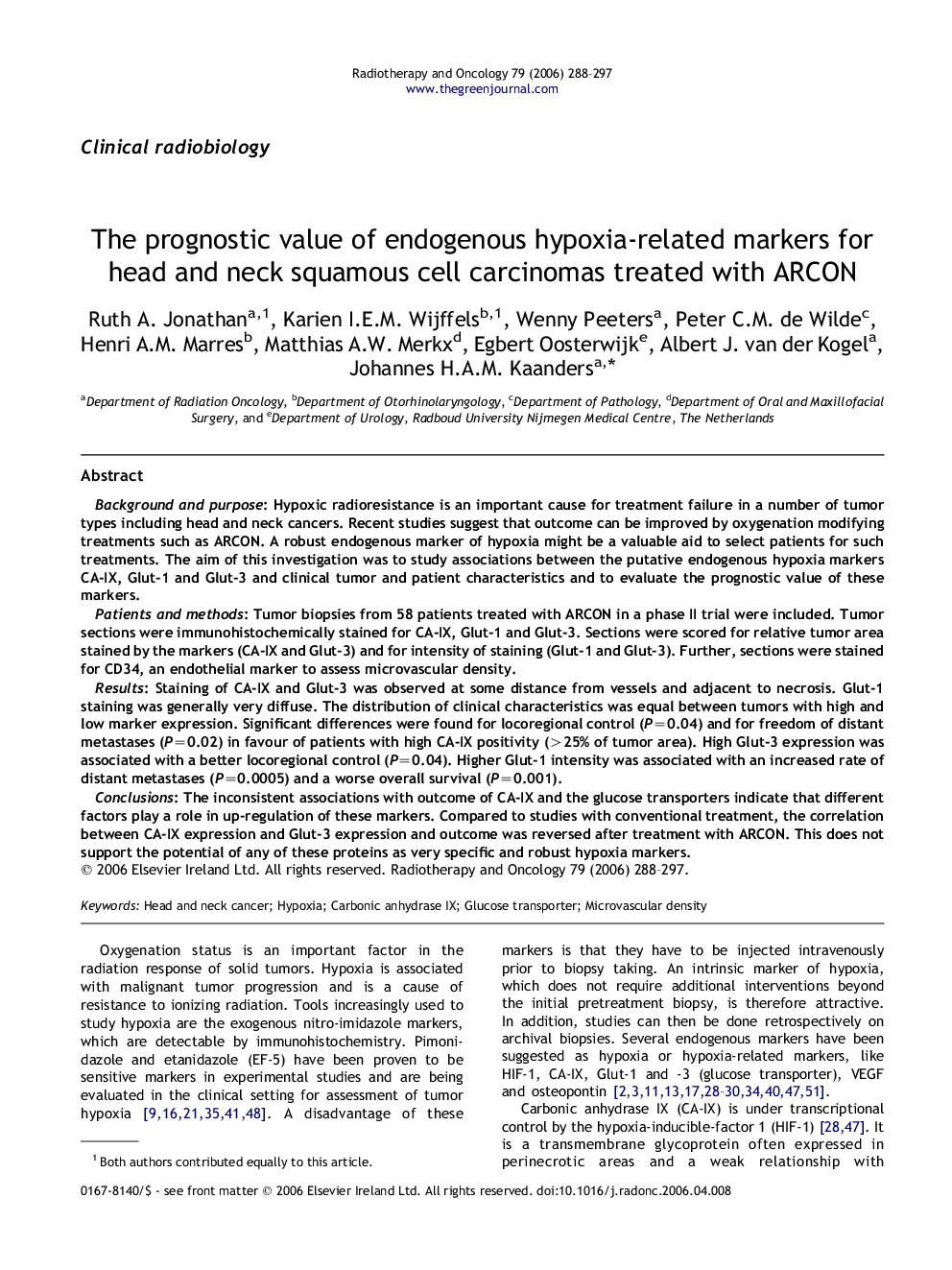| Article ID | Journal | Published Year | Pages | File Type |
|---|---|---|---|---|
| 2161291 | Radiotherapy and Oncology | 2006 | 10 Pages |
Background and purposeHypoxic radioresistance is an important cause for treatment failure in a number of tumor types including head and neck cancers. Recent studies suggest that outcome can be improved by oxygenation modifying treatments such as ARCON. A robust endogenous marker of hypoxia might be a valuable aid to select patients for such treatments. The aim of this investigation was to study associations between the putative endogenous hypoxia markers CA-IX, Glut-1 and Glut-3 and clinical tumor and patient characteristics and to evaluate the prognostic value of these markers.Patients and methodsTumor biopsies from 58 patients treated with ARCON in a phase II trial were included. Tumor sections were immunohistochemically stained for CA-IX, Glut-1 and Glut-3. Sections were scored for relative tumor area stained by the markers (CA-IX and Glut-3) and for intensity of staining (Glut-1 and Glut-3). Further, sections were stained for CD34, an endothelial marker to assess microvascular density.ResultsStaining of CA-IX and Glut-3 was observed at some distance from vessels and adjacent to necrosis. Glut-1 staining was generally very diffuse. The distribution of clinical characteristics was equal between tumors with high and low marker expression. Significant differences were found for locoregional control (P=0.04) and for freedom of distant metastases (P=0.02) in favour of patients with high CA-IX positivity (>25% of tumor area). High Glut-3 expression was associated with a better locoregional control (P=0.04). Higher Glut-1 intensity was associated with an increased rate of distant metastases (P=0.0005) and a worse overall survival (P=0.001).ConclusionsThe inconsistent associations with outcome of CA-IX and the glucose transporters indicate that different factors play a role in up-regulation of these markers. Compared to studies with conventional treatment, the correlation between CA-IX expression and Glut-3 expression and outcome was reversed after treatment with ARCON. This does not support the potential of any of these proteins as very specific and robust hypoxia markers.
